Edinburgh Festival Fringe 2016 – Trends and Highlights At The World's Largest Performing Arts Festival
National Gender Apocalpyse
by Andrew Haydon
Edinburgh, 29. August, 2016. There was a largely unmentioned cloud that hung over the Edinburgh Festivals this year; Britain’s putative departure from the EU (at time of writing, there is apparently still some doubt here that it will ever happen ). Since the vote only took place on June 23rd – and, lest we forget, no one even thought the Leave campaign could win before they did – there was very little that directly addressed "Brexit" at the Festivals. The comedian Bridget Christie apparently tore up her planned show when the result was announced, and instead delivered a rapturously-received, hour-long tirade against the vote, but this was the exception rather than the rule. Instead, the dismal news sat under everything else, seeping in like the damp of the converted basements and caves where so many of the shows take place.
In place of Brexit, the Fringe this year seemed largely paralysed by similar impotent furies at much larger questions, also beyond the control of the artists exploring them. The three themes that really dominated this year were questions about gender, nationalism and, interestingly, the end of the world. That saids, the intersection of these three strands of concern, when taken together, painted a surprisingly accurate picture of the depressed, hysterical, crisis-thinking national mood in the UK. (N.B. remember we’re discussing 3,000+ shows, of which I saw a tiny fraction, led by personal taste and their popularity/success/must-see-ness; so this is a necessarily subjective survey).
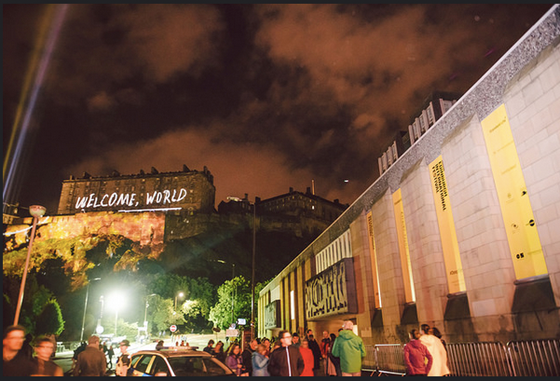 "Willkommen Welt": Das Opening Event "Deep Time" zur Eröffnung des Edinburgh International Festival in der schottischen Stadt. In seinem Windschatten hat sich das parallel stattfindende Edinburgh Festival Fringe zum größten Performing Arts Festival der Welt entwickelt.
"Willkommen Welt": Das Opening Event "Deep Time" zur Eröffnung des Edinburgh International Festival in der schottischen Stadt. In seinem Windschatten hat sich das parallel stattfindende Edinburgh Festival Fringe zum größten Performing Arts Festival der Welt entwickelt.
© International Edinburgh Festival
Beyond Glibness
There was such a lot of work taking "gender" as its main theme this year that you could probably have spent an entire month in Edinburgh watching pieces tackling everything from the phenomenon of "revenge porn" (Blush, Heads Up), through to The Crisis of Masculinity (Two Man Show), via all manner of one-person shows, presenting – with varying degrees of success/quality/aptitude – their makers’ personal perspectives on what it means to be a woman/a man/etc. in 2016 (in much the same way that last year a tonne of solo artists made pieces about dealing with their depression/mental health issues). Coming off the back of the vigorous and sustained renewal of feminism on Twitter and beyond (at least in the UK and USA), and with the predictably mixed results of a movement with literally no fixed ideological point whatsoever, the best of these pieces were those which had a clear agenda, asked difficult questions, and refused the usual glib answers.
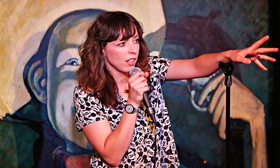 Bridget Christie bei ihrer Anti-Brexit-Tirade
Bridget Christie bei ihrer Anti-Brexit-Tirade
© Murdo MacLeod / GuardianThe company Rash Dash seemed to interrogate everything from neanderthal masculinity to the rigidity of traditional gender roles for men and women in a piece that ultimately seemed to argue as much with traditional forms of British naturalistic playwriting as with actual genders in the real world. Conversely, Alice Birch’s Revolt. She Said. Revolt Again – arguably one of the most exciting British texts-for-theatre of the last few years – suffered for being presented at the Fringe in a stiflingly conservative Royal Shakespeare Company production that had the effect of making the text look like it was just playing at "revolution". When suddenly taken out of its Stratford home, and placed alongside shows like FK Alexander’s (I Could Go on Singing) Over the Rainbow – a fierce, moving durational piece, mixing power electronics and live art – or Lucy McCormick’s Triple Threat – an obscene-but-brilliant re-telling of the life of Jesus Christ, somehow equating the Holy Trinity with singing, dancing and acting in musical theatre – it looked horribly, unforgivably like a flimsy, polite comedy-of-manners with some timid borrowings from Regietheater tropes.
Telling Stories About The End Of The World
The idea of the end of the world seemed a more surprising subject to be hit upon by various theatremakers, although, after a few minutes with each piece, you are struck by the increasingly apocalyptic tone of, well, everything from social theory to environmental concerns, to the news reporting of anything from the US election through to ISIS and the refugee crisis. And suddenly these pieces telling the story of the end of the world – Scottish solo artist Kieran Hurley’s Heads Up – or imagining the future of the theatre auditorium in which we’re sitting thousands of years into the future after mankind has suddenly disappeared from the face of the earth in some unspecified, almost-supernatural occurrence – Belgian group’s Ontrorend Goed’s World Without Us – seem completely rational and expected. (See also the threatened environmental catastrophes of Cosmic Fear, or the new, searing Lithuanian production of Falk Richter's Under Ice)
Of course, telling stories about the end of the world has existed as a theme in literature from almost the moment that humanity could conceive of itself as a thing and write it down. But, somehow, knowing that didn’t make this "living in end times" thinking seem any the more comforting or any less likely. Particularly when the next set of pieces is taken into account; because, for all the tales of global annihilation or endless gendered violence, it was the plays looking at nationalism, national identity; and – as a sub-stratum of these – numerous pieces vilifying the Russian Federation; that really got under the skin.
How To Win Against All This Angst
Whether simply forming an exotic backdrop for allegorical tales of maniacal self-determinism (My Eyes Went Dark), being the Big Bad Historical Enemy in Deborah Pearson’s charming tale of her Hungarian film-star grandfather's flight from 1956 Budapest (History, History, History), or being (half) the much more recent Big Bad Enemy after the Maidan Square protests in Ukraine (Counting Sheep), this sudden renewal of "Russia" as a kind of atavistic, folk-memory enemy felt almost like a concerted unconscious propaganda drive towards a war that has not yet been declared. When experienced as Britain possibly prepares to leave the European Union, and Republican US Presidential Candidate Trump talks about reducing NATO to being little more than a nuclear protection racket, it feels – yet again – like a genuinely chilling time to be alive; certainly if one is taking one’s cues from the pieces presented at a Fringe Theatre Festival in Edinburgh, that is.
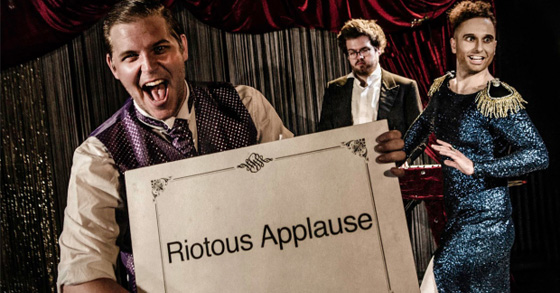 Festival Highlight "How To Win Against History" vom Assembly George Square Theatre Edinburgh.
Festival Highlight "How To Win Against History" vom Assembly George Square Theatre Edinburgh.
© The Edinburgh Festival Fringe Society
Against all this angst, it is possibly unsurprising that the absolute undisputed hit of the Fringe was How To Win Against History, a micro-scale, three man musical, subversively celebrating the life of a minor English aristocrat – Henry Cyril Paget, the 5th Marquess of Angelsey – whose cross-dressing, flamboyant lifestyle, and the fact that he spent his entire family fortune on putting on stage spectaculars in which he also starred, meant that after his early death he was almost entirely scrubbed from the history books. Of course, the joke of the show is that it’s this incredibly-obvious-but-still-subversive take-down of everything everyone* in England hates about the Tory Party, the class system, centuries of institutionalised homophobia, racism, the Daily Mail and all the small-minded rest of it. Ironically, then, a perfect attack of the forces of Brexit delivered in the most "English" form imaginable; a witty light operetta. And perhaps this paradox is indicative of the greater crisis at the heart of Brexit.
*Not quite everyone, annoyingly.
Edinburgh Festival Fringe 2016
www.edfringe.com
www.eif.co.uk
Für Horizonterweiterung
Der Blick über den eigenen Tellerrand hinaus ist uns wichtig. Wir möchten auch in Zukunft über relevante Entwicklungen und Ereignisse in anderen Ländern schreiben. Unterstützen Sie unsere internationale Theaterberichterstattung.
meldungen >
- 17. April 2024 Autor und Regisseur René Pollesch in Berlin beigesetzt
- 17. April 2024 London: Die Sieger der Olivier Awards 2024
- 17. April 2024 Dresden: Mäzen Bernhard von Loeffelholz verstorben
- 15. April 2024 Würzburg: Intendant Markus Trabusch geht
- 15. April 2024 Französischer Kulturorden für Elfriede Jelinek
- 13. April 2024 Braunschweig: LOT-Theater stellt Betrieb ein
- 13. April 2024 Theater Hagen: Neuer Intendant ernannt
- 12. April 2024 Landesbühnentage 2024 erstmals dezentral


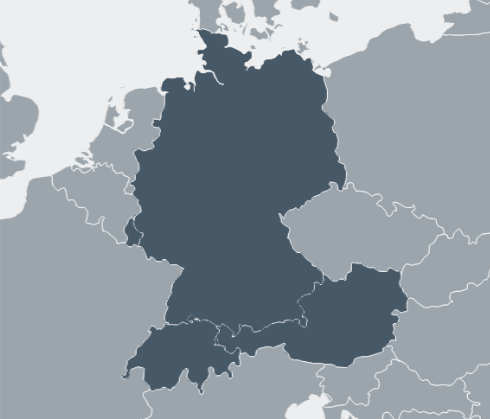
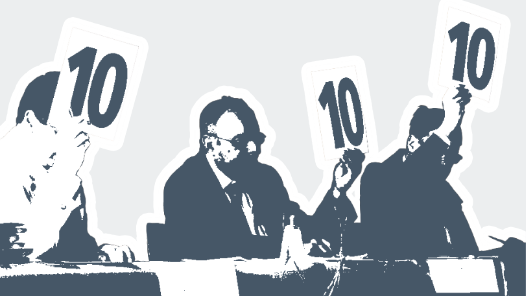
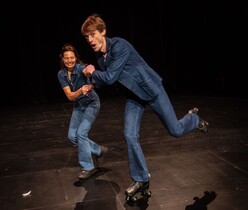
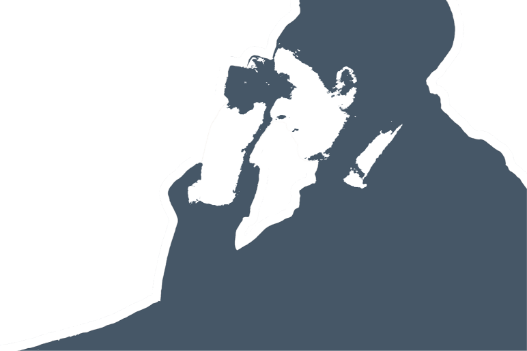
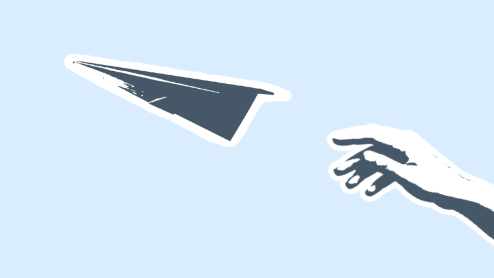

neueste kommentare >